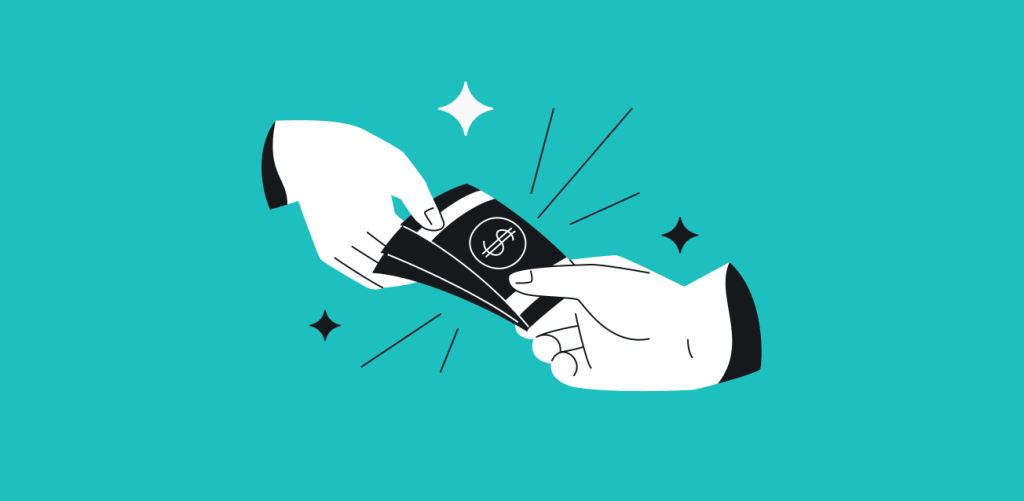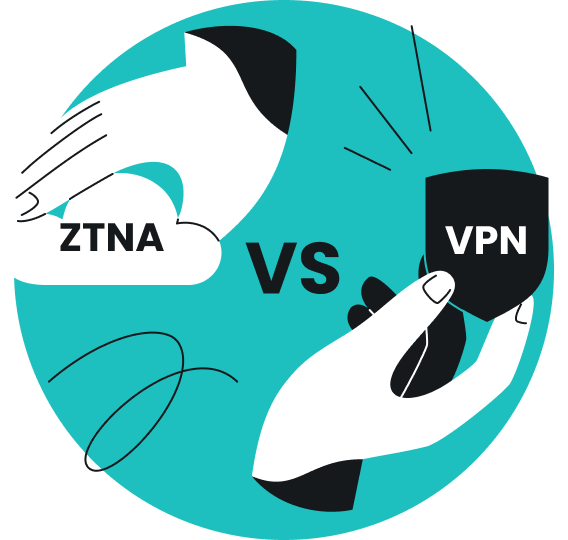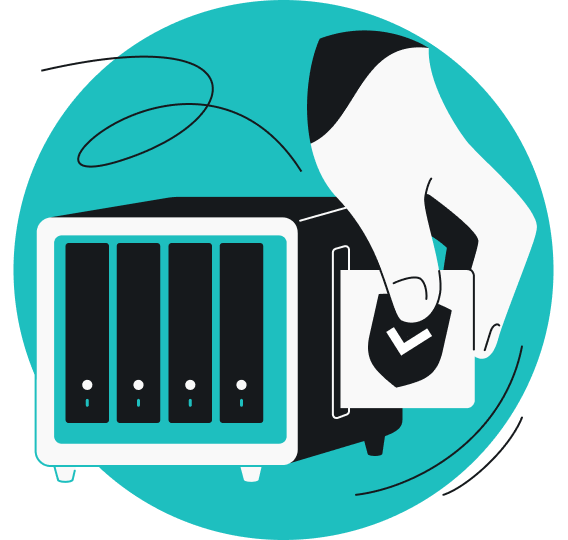
These days, scammers seem to lurk around every corner. Whether through a sneaky phishing email, a too-good-to-be-true online offer, or a fraudulent charity, falling victim to a scam can be a devastating experience full of worry and self-blame. The burning question that often follows is: will my bank refund me? And, more importantly, how do I never get scammed again?
Table of contents
Do banks refund scammed money?
Banks can refund scammed money — but the process is rarely straightforward. Everything depends on what kind of transaction was involved, how the scam unfolded, and how quickly you reacted. While some victims are reimbursed swiftly, others face frustrating uphill battles.
Here’s a closer look at what you can expect:
Unauthorized card payments or unknown charges
Banks are generally required to refund unauthorized transactions, but if and when they do often depends on how quickly you report the issue. In most cases, your credit card company will freeze the disputed charge, and some may issue a provisional credit while they investigate the claim.
The process can be a bit more stressful for debit card transactions, as the funds are immediately taken from your bank account, and provisional credits are rare. You may also be required to pay a liability fee — but the amount will depend on your bank and how long it took you to notify them.
Payment apps or wire transfers
Scams involving payment apps or wire transfers are usually more difficult to resolve. These transactions lack the consumer protections of credit cards, and funds sent directly to the scammer are much more difficult to trace and recover. That said, some payment apps now offer buyer protection services for specific types of purchases.
If you paid the scammer via wire transfer, you should immediately contact your bank representative to halt the transaction — there’s a chance it hasn’t been fully processed yet. Once the transfer is completed, the chances of recovering the funds become slim.
Hacked accounts
If you believe your account number or other sensitive information has been compromised, time is of the essence. Contact your bank right away to report the unauthorized transfer or fraudulent transaction. Most banks will take swift action to freeze your account, issue a provisional credit, and begin investigating. The sooner you report the issue, the better your chances of getting refunded.
Banks are usually cooperative when it comes to obvious cases of fraud, especially when you’ve acted quickly. However, recovering from some banking scams, specifically those where sensitive information has been stolen due to negligence (like sharing your account number over unsecured channels), can be trickier.
How long do banks take to refund scammed money?
Once you report a fraudulent transaction to your bank, your next concern is likely how long it will take to recover stolen funds. The timeline for a refund varies based on the payment method involved and the bank’s investigation process. Here’s what to expect:
Credit card fraud
If the scam involved your credit card, you are generally in a better position, thanks to the protections offered by law. If you’re in the US, the Fair Credit Billing Act obligates credit card issuers to investigate and resolve disputes within two billing cycles but no more than 90 days from when you first report the issue.
During the investigation period, many credit card companies will issue a provisional credit, giving you temporary access to the disputed amount while they look into the unauthorized transactions.
In most cases, if the fraudulent charge is confirmed, the credit card provider will permanently refund the amount in question. However, the speed of this process depends on how quickly you reported the suspicious activity and whether the scam falls within the bank’s fraud policies.
Debit card fraud
For debit card users, the process can be more complex, and the timeline for a refund can be longer. When a fraudulent transaction is reported, banks typically have up to 10 business days to investigate the claim. However, this can be extended to 45 days if the case is especially complicated — like if international transactions were involved or sensitive information got leaked.
Wire transfers and payment apps
Recovering funds from a wire transfer or a payment app scam can take significantly longer. Because banks generally process money transfers quickly, reversing such transactions is difficult. However, if you manage to report the scam before the transfer is fully processed, your bank representative may be able to halt the payment.
Refund policies widely vary for payment apps, like those designed for peer-to-peer transfers. Some apps offer protection for goods and services but may not cover personal payments. Depending on the app, the investigation could take anywhere from a few days to several weeks.
What if the bank doesn’t reimburse you?
Even if you act quickly and do everything by the book, your claim can still be denied. You need to be prepared for this and decide if you want to take further action.
Here are the steps you can take if your bank refuses to refund you:
Filing a formal dispute
If your initial request for a refund is denied, consider filing a formal dispute with your credit card provider or bank representative. Many financial institutions allow you to present additional evidence. Make sure to include any documentation proving the transaction was unauthorized or fraudulent, such as correspondence with the scammer, screenshots, and transaction details.
For credit card holders, the Fair Credit Billing Act provides the right to formally dispute incorrect or unauthorized transactions. This act is your best friend when trying to reclaim funds lost to fraud.
Contacting consumer protection agencies
If your dispute with the bank is unsuccessful, you can go a step further and file a complaint with a consumer protection agency. In the US, one of the most effective bodies in dealing with bank fraud is the Federal Trade Commission (FTC). After you file a formal complaint, the FTC can investigate the fraud further and pressure your financial institution to resolve the case.
Other consumer protection organizations, such as your local Attorney General’s office or the Consumer Financial Protection Bureau (CFPB), may also be able to assist.
Seeking legal advice
If you’ve exhausted all other options, including formal disputes and consumer complaints, it may be time to consider seeking legal advice. An attorney experienced in financial fraud or consumer protection can help you navigate situations where your bank representative or credit card company refuses reimbursement. While this can be costly, it may be a necessary step in cases where significant amounts of money have been defrauded or where the fraudulent charge has caused lasting damage.
Some legal professionals can advise you on whether to pursue litigation, especially if your bank has violated its obligations under consumer protection laws. Although legal action is usually a last resort, it can lead to settlements or refunds you wouldn’t otherwise receive.
6 ways to protect your bank account from scammers
If you’ve fallen victim to fraud, it’s important to review your actions and take preventative measures to protect yourself from future scams. Banks and credit card issuers often deny claims if they believe you were negligent in protecting your sensitive information or failed to report suspicious activity promptly. Besides, preventing fraud is always better than dealing with the stress of trying to recover stolen money.
Here are some effective measures to secure your bank account from scammers:
Enable two-factor authentication
One of the most effective ways to protect your accounts is to enable two-factor authentication (2FA). 2FA adds an extra layer of security, such as a text message code or biometric scan, when you log in or initiate transactions.
Even if a scammer obtains your account number or password, they would still need this second verification step to complete a fraudulent transaction. 2FA is a feature most banks and credit card providers offer, so it’s worth turning on for all your financial accounts.
Regularly monitor your transactions
Keeping a close eye on your bank and credit card statements is one of the easiest — yet most overlooked — ways to protect yourself from fraud. Make it a habit to check your accounts frequently for suspicious activity.
Doing so allows you to quickly report unauthorized transactions before they are processed or the scam escalates. Some banks even offer real-time alerts for fraudulent charges, giving you a head start in stopping fraud.
Be cautious with unfamiliar payment apps or online transfers
Many banking scams involve sending money through payment apps or wire transfers because these payment methods are much harder to revert. Before using a payment app, make sure the recipient is legitimate. Be especially wary of peer-to-peer transfers and unverified payment requests. If something doesn’t feel right, it’s always worth double-checking.
Use a VPN
Using a VPN (Virtual Private Network) is a powerful tool for keeping your online banking secure. A VPN like Surfshark can protect your sensitive information by encrypting your internet traffic. This is especially important when accessing your bank account on public Wi-Fi, where scammers can intercept your info more easily. A VPN masks your IP address and shields your online activity, making it harder for cybercriminals to gain access to your account number or login credentials.
Watch out for charity scams and phishing attacks
Scammers often take advantage of people’s goodwill by setting up fake charities or sending phishing emails. To avoid charity scams, always verify the legitimacy of the organization in question.
Look for red flags such as unsolicited requests for money, poorly designed websites, or high-pressure tactics urging you to donate immediately. Also, never click on suspicious links or attachments in unsolicited emails, as they may be part of a phishing attempt to steal your banking information.
Create strong, unique passwords
Using strong, unique passwords for your bank and financial accounts is a basic but effective way to protect your money. Avoid reusing passwords across different sites, especially those related to financial services. Consider using a password manager to generate and store strong passwords that are harder for scammers to crack.
Conclusion: it’s time to consider your financial security
Scams are getting more sophisticated by the day, and staying ahead of them is crucial. While recovering lost funds isn’t always guaranteed, the more informed and proactive you are, the better your chances of getting your money back.
By strengthening your defenses — whether that means monitoring your accounts, using 2FA, or securing your data with a VPN — you can make it much harder for scammers to succeed. One thing is certain: the future of financial security belongs to those who are prepared.
FAQ
Can my bank refund me if I get scammed?
Yes, your bank can refund you, but it depends on the type of scam and how quickly you report it. Banks are more likely to refund unauthorized transactions if you act promptly.
Are banks liable if you get scammed?
Banks may be liable for unauthorized transactions, but liability depends on the circumstances and the type of scam. Reporting fraud quickly is the key to minimizing your liability.
How do you track down someone who scammed you?
Tracking down a scammer is difficult, but you can report the scam to your bank and authorities like the Federal Trade Commission. They may assist with investigations, but recovery of funds is not guaranteed.
How do I stop a scammer using my bank account?
Immediately contact your bank to freeze your account and prevent further fraud. Changing passwords, enabling two-factor authentication, and monitoring transactions can help secure your account.


